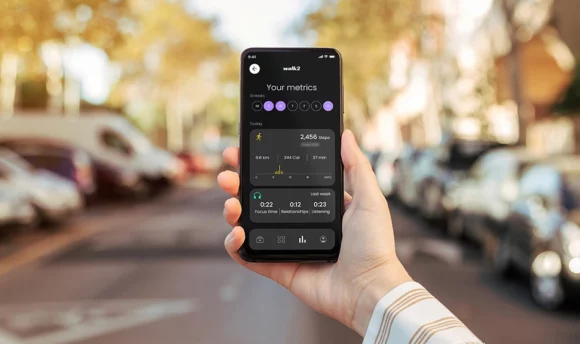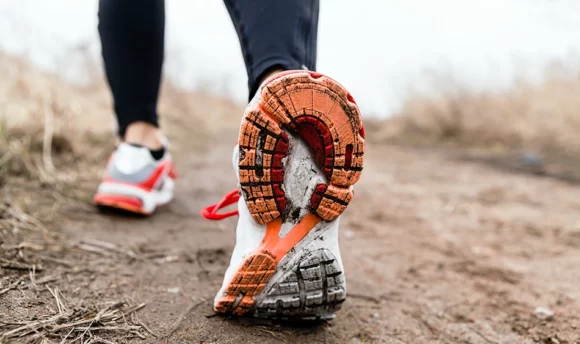Running for Weight Loss? Here's Why You May Be Doing It Wrong
When you are trying to lose weight, running is a great way to burn calories; however, you need to do it the right way to see results. In this article, we will review why you may not be achieving your goals when you are running for weight loss.

Running can be one of the best ways to lose those extra pounds. But you have to get it right. Many runners who want to lose weight end up gaining it instead.
If you’re running for weight loss but not seeing results, here’s why you may be doing it wrong. Fix these, and you should start seeing the pounds melt away.
Does Running Help You Lose Weight?
Running is one of the best ways to burn calories while exercising. And the more calories you burn, the better your chances of losing weight.
It can definitely help you lose weight, and this is especially true for new runners who will benefit from the increased metabolism that exercise and running provide.
However, running alone won’t necessarily help you reach your weight goals. An increase in muscle mass combined with a stronger appetite may even cause you to gain weight.
That’s why you should combine running with other healthy habits to see results. These include setting appropriate goals, diet, hydration, cross-training, and sleep.
11 Reasons You Don’t Always Lose Weight When You Run
If you’re not losing as much weight as you’d hoped from running, the following are some of the most common reasons.
#1 Setting unrealistic goals
You may already have a very clear idea of what your end goal is. However, while “Lose 50 pounds” might be an excellent overall objective, if you’re weighing in every day with that number in mind, it’s easy to get discouraged.
It takes a caloric deficit of 3,500 calories to lose just one pound of weight. To lose one pound, you need to be in a 500-calorie deficit daily for a week. Therefore, losing 50 pounds can take up to a year.
When you think about it this way, it’s easy to see how this goal might be unrealistic right now. Breaking down your end goal into more manageable chunks can help you see the smaller losses that will add up over time.
Losing a pound or two a week is realistic and achievable for most people. It makes more sense, then, to break your goals down monthly – for example, “Lose 5 pounds by the end of the month.”
Keep in mind that your level of experience also makes a difference. People who have been running for a long time can run farther and faster than new runners. Someone who runs 10 miles will burn more calories than a beginner who can’t run more than 3 miles.
Of course, as a new runner, you’ll work harder to run those 3 miles since your body hasn’t adapted yet. This will increase how many calories you burn. However, until your body adjusts to running, you’ll be limited by how far and how often you are able to run.
In this case, something like “Lose 3 pounds by the end of the month” might be appropriate. Set realistic, short-term goals, and you’ll find that you’re a step closer to your overall goal.
#2 Too much emphasis on the scale
The scale is deceiving. Yes, it shows your weight, but it doesn’t show what exactly is contributing to that weight.
For example, if you drink half a gallon of water, you’ll be around 4 pounds heavier. And if your body retains some water for whatever reason, that weight sticks around.
Things like hormonal changes, whether you’ve been to the bathroom, and even heat and humidity can mess with the number on the scale. So if you put too much emphasis on the number, you’re bound to be disappointed.
Weight loss needs to be measured over time. We recommend either weighing yourself weekly or daily but taking an average – combined daily weight divided by 7. This should eliminate the usual daily fluctuations.
Also, pay closer attention to your energy levels, how your clothes fit, and if it’s getting easier to do things like walking up the stairs. These things are likely to be a better indication of your improving fitness levels and weight loss.
#3 Not drinking enough water
If you don’t drink enough water, your body tends to take what you do drink and hold onto it, so it has a little stash for when it’s dehydrated. In these cases, your body retains water, and it can literally add pounds to your weight.
The obvious fix here is to drink more. 8 cups of water a day is a common measurement; however, that number may be higher depending on your health, environment, and exercise.
You lose water when breathing, sweating, going to the bathroom, and digesting food. Plus, when you exercise, you’ll lose a lot more through sweating, so you’ll need between 12 and 16 cups per day.
#4 Not tracking calories
Tracking calories is one of the best weapons for weight loss. While exercise can help you lose weight faster, it all comes down to diet.
If you’re eating fewer calories than you burn, your body will have to dip into its fat storage. But if you’re eating more calories than you’re burning, you simply won’t lose weight.
The first step is finding out how many calories you should be eating based on your body weight and exercise level. Use a calorie calculator to figure it out, and remember that your daily caloric burn includes all the calories burned by doing things like walking, fiddling, breathing, digesting food, and so on.
Once you know how many calories are right for you on a daily basis, we highly recommend tracking how many calories you are eating. Intuitive eating is not a good idea when trying to lose weight.
Pro tip: Intermittent fasting may accelerate weight loss and make it easier to stick to your calorie goals.
Hidden calories
Hidden calories come from foods that don’t even cross your mind but contain a high number of calories. Some examples include:
- Cooking oil (+-40 calories per teaspoon)
- Salad dressing (+-25 calories per teaspoon)
- Sugar (+- 17 calories per teaspoon)
- Soda (+- 120 calories per 12oz)
When tracking your calories, track absolutely everything that you consume. This is the only way you’ll start to become aware of how many calories you’re eating.
#5 Excess water weight
While not drinking enough water can cause your body to hang onto up to 4 pounds of water weight, there are other reasons you could have excess water hanging around.
If you’re sure you’re drinking enough each day, but you’re still retaining water, you may need to consider other reasons. Water retention can manifest itself as bloating, puffiness in the face, hips, and abdomen, and swollen feet and legs.
Reasons for water retention include:
- Consuming too much sodium in your diet
- Certain medications – check with your doctor
- Sitting for too long can cause fluid to accumulate
- Being on your feet for too long can cause blood to pool
- Pregnancy and menstruation can cause hormonal fluctuations
- A number of medical conditions – check with your doctor
#6 Not following a healthy diet
If you’re tracking calories and eating less than you’re burning, you will lose weight. But if you’re eating junk food, it’s going to be a lot harder.
It’s in your best interest to eat a diet of whole foods, moderate carbohydrates, high protein, and low fat. These are your best bets for weight loss.
Processed foods are often high in calories and low in nutrients. They’re often referred to as empty calories. This means you’ll find that you’re meeting your daily calorie quota but are still starving.
Eat lean protein with every meal, choose high-quality, complex carbohydrates, and consume plenty of veggies. These will provide you with all the nutrients you need while keeping you full throughout the day.
Pro tip: Don’t be afraid to go high on the protein. For weight loss, you should be eating 1–1.2 grams of protein per pound of body weight.
#7 You’ve gained muscle
If you’re completely new to exercising, there’s a high chance that you’ll be gaining muscle at the same time as losing weight. This means when you step onto the scale, it’s going to look like you aren’t losing anything.
This is why it’s important to measure your weight loss by more factors than just the number on the scale. Your body composition is likely changing, becoming stronger and more toned.
This is an indication that your body is becoming more muscle and less fat, so don’t believe it when the scale tells you that you aren’t losing weight.
#8 Your muscles are inflamed
If you’ve done a hard workout, your muscles will likely be inflamed. During exercise, your muscles experience micro-tears in the fibers.
Studies have shown that fluid retention can occur after strenuous exercise. This excess fluid could appear to be weight gain if you’re weighing yourself too soon after a workout.
#9 You’re not varying your routine
For experienced runners, you’ll see results much faster if you vary your routine, adding in some interval training sessions in between your steady-state runs. Research shows that high-intensity interval training (HIIT) accelerates weight loss.
Don’t just stick to a 3-mile or 5-mile run every day. Try doing longer steady-state runs a few days a week and adding some intervals in between. You should see faster results.
#10 Running is the only movement you get
Your calorie burn for the day is much more than just your exercise. You burn calories by walking from the bedroom to the bathroom, going up the stairs, watering the garden, and everything else that requires movement.
However, if you don’t move much between your daily runs, you might not burn as many calories as you think.
Try to get more natural movement in during your day – take the stairs instead of the lift, walk to the store instead of driving, or do a few pushups every time you want to change the TV channel.
You should also incorporate cross-training into your routine. This helps prevent boredom when you are working out while helping you maintain fitness. And if you add strength training to your workout schedule, you’ll lose even more weight by building lean muscle and increasing your metabolism.
#11 Not getting enough rest
Miss out on your sleep, and your calorie burn suffers. Research indicates that people who sleep less than 6 hours per night tend to have a higher level of body fat, but there could be multiple reasons for this.
When your body isn’t well-rested, your cravings for quick energy are stronger during the day, often prompting you to grab something unhealthy just for a dose of energy.
Also, it’s much harder to find the motivation to exercise when tired, which could lead to skipped workouts.
Conclusion
It’s perfectly possible to lose weight by running, as long as you’re doing all the small extra things right.
If your weight loss has stalled, see if any of the reasons we discussed apply to you. If they don’t, it could be worthwhile to check with a running coach or personal trainer for other suggestions.

















































 Select your language:
Select your language: 









